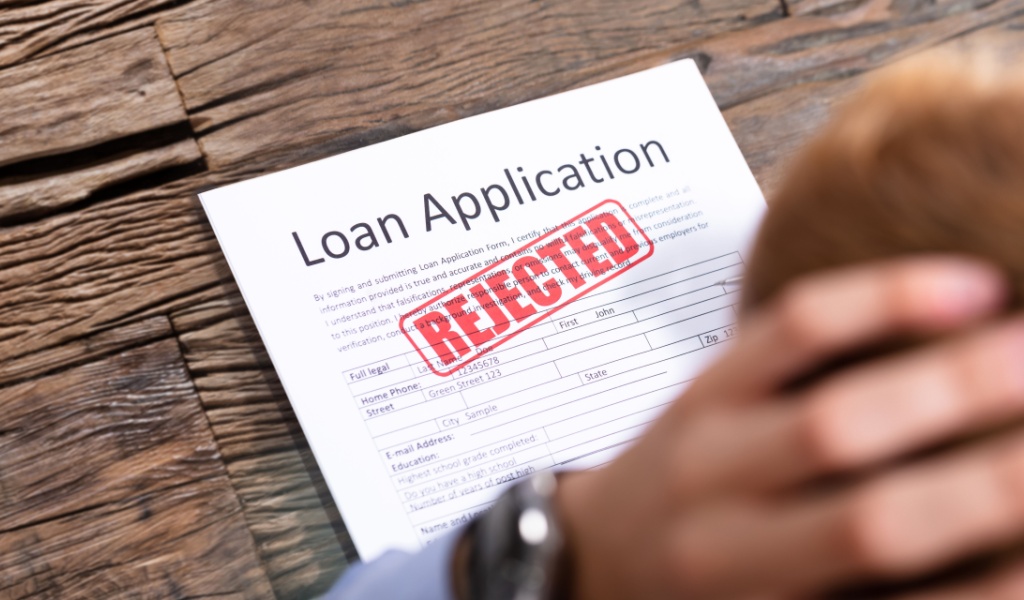Getting a home loan is a significant milestone in many people’s financial journey. However, this is easier said than done because even applicants who have stable jobs and decent credit scores can potentially face loan application rejection. Common, well-known causes for rejection include incomplete documentation, high debt-to-income ratio, and low credit score. However, many other less-known reasons can also lead to nonacceptance.
When applying for a mortgage, people will inevitably enter the process with high hopes of things working out. So, when the application is rejected, it can be very distressing and devastating. But don’t let the horror stories worry you. There are many reasons why an application might be denied, and thankfully, most of them are well within your control.
So, let’s explore some of the reasons why your mortgage application could be declined and try to understand how you can increase the chances of your mortgage loan being sanctioned.

Credit Issues
Your credit score is the most significant factor in determining your mortgage rate and approval. Usually, people with credit scores of 740 or higher get the best deals, and those who fall within the “good” range of 670 to 739 are the most desirable.
If you have much lower scores, you can still qualify for some types of mortgages. For example, VA loans are available for those with scores of over 620, and FHA-backed loans are available for those with scores as low as 500.
Check your credit score and credit report before applying for a mortgage so you can dispute any errors. If you have a low credit score, try increasing it before applying for a mortgage loan. You could ask your card company to increase your credit line, which will lower your credit utilization ratio. At the same time, ensure that you don’t do anything that could make your credit score drop during the mortgage process. Be cautious not to miss a payment, max out your credit card, or apply for another new loan.
Changing Jobs Frequently
Lenders look strongly into the employment stability of the borrower. So, a short employment history – even if you are earning well – can raise red flags. Switching between jobs within a short time or still being in your probationary period can also be reasons for your application to be refused. Usually, lenders prefer applicants who have at least 2 to 3 years of steady employment, ideally in the same industry.
Property Title Disputes
Suppose the property you want to buy has an unclear ownership history, property title issues, or is built on land without the correct government approvals. In that case, your home loan can be rejected even if your finances are in good order. Before approving loans, lenders carry out legal and technical research. Therefore, any irregularity can cause your application to be rejected.
Loan Settlement History
It can be seen as a giant red flag if you have settled a loan for less than the outstanding amount due. Remember, loan settlements can seem like an improvement to your short-term finances, but they stay in your credit report. This signals a risk to lenders, who would naturally be reluctant to offer a new loan.
History Of Low Credit Utilization
Did you know that using very little credit can sometimes work against you? Let’s say you have a high credit score but a limited credit usage history and have never used a credit card or a loan. In that case, lenders won’t have enough data to understand your repayment behavior. As a result, they may prefer to avoid lending money to you as they can’t predict whether you’ll pay them back.

Missing Key Information On Your Application
Sometimes, careless mistakes can lead to rejection, so you must complete the mortgage application thoroughly. Remember, any small incomplete section can cause the underwriting software to discard your application, leading to an automated rejection.
Several Loan Applications In A Short Time
When you apply to many lenders at the same time or within a short span, it can make you appear credit-hungry. Every application activates a hard inquiry on your credit report, so having multiple loan applications can lower your credit score and make lenders wonder about your repayment capacity.
What Can You Do If Your Loan Application Gets Rejected?
- To understand how you can improve your credit score, get a credit report
- Live within your means and maintain a realistic budget, as this shows your reliability as a borrower
- Save more money to attain the threshold of 20% deposit
- Have a regular savings account into which you deposit cash frequently, so it qualifies as genuine savings
- Settle off your debts as fast as you can and stay away from incurring more debt
- Ensure that you stay at a stable job
- Select a property that ticks the lending criteria of most lenders
- Settle your bill payments on time
Bottom Line
There is no doubt that the mortgage application process has a lot of surprises along the way. Whether it’s the automated underwriting system that declines your application or your own financial setbacks that lead to it, find out why your application was repudiated and figure out how you can remedy that. You can do this by requesting a manual underwriting, which is a review by a human underwriter, or exploring alternatives to conventional conforming loans. We wish you all the best on your journey to homeownership!



